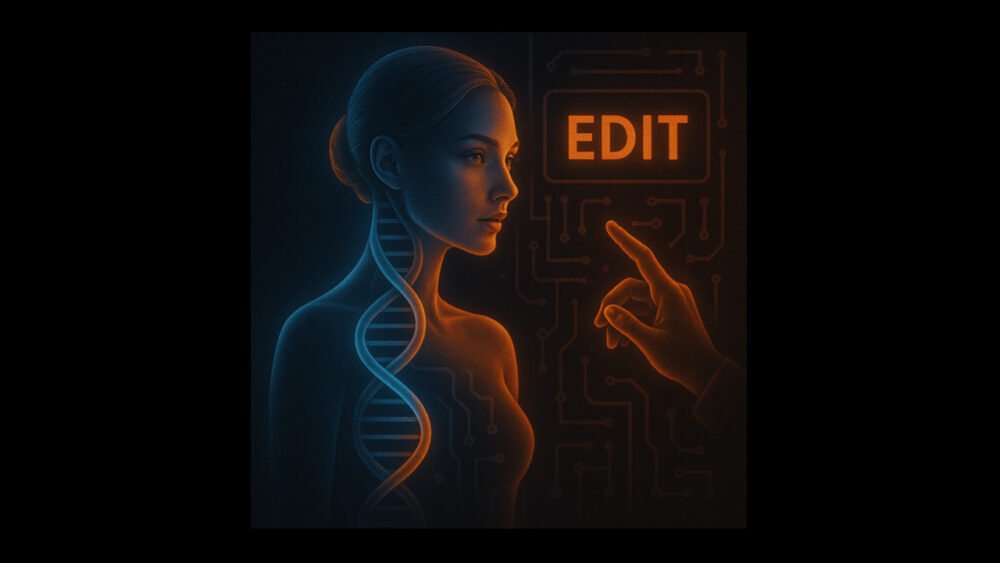I didn’t just explore my genes — I interrogated them. Through a cutting-edge test from Amsterdam Genomics, I discovered I carry one marker for Factor V Leiden (a clotting mutation tied to miscarriages), the FRZB mutation (linked to osteoarthritis), and a host of inflammatory and autoimmune markers — including risks for Crohn’s disease and IBS.
Those insights weren’t just interesting — they were life-altering.
That data led me to schedule a colonoscopy at 40 … where doctors removed three precancerous polyps.
That test didn’t just give me information. It gave me a second chance.
I’ve since recalibrated everything — my supplements, my training, my medical support system, even how I think about the next 40 years of my life. It’s powerful, yes, but also a little terrifying. Because while knowledge is power, it also hands you a responsibility: to act, to adapt, to lead with intention.
That’s why this week’s episode of my podcast, Empowered Health: Simple, Smart, and Within Reach, is so deeply personal. I sat down with two people who’ve helped me turn insight into action:
- Dr. Manik Aggarwal, a concierge physician combining genomics, advanced lab work, and AI-powered diagnostics to deliver care that’s not just personalized — it’s predictive
- Matthew Lindenmeyer, a physical & rehabilitation expert whose work has helped me understand how my body compensates, protects, and heals, especially in light of the genetic and structural challenges I’ve uncovered
We didn’t just talk about futuristic possibilities; we talked about accessible next steps.
This episode touches upon:
- Which gene testing platforms are worth considering
- Real price points for some tests – from basic to advanced
- Children and health habits today
Because this isn’t just for people with concierge doctors or rare diagnoses.
This is for anyone who’s ever felt that something in their body wasn’t adding up and didn’t stop asking questions.
That was me. And maybe it’s you too.
And if you think that’s the far edge of what’s possible, let me introduce you to the front line.
This week, I read about a Boston-based biotech firm that is now piloting in utero gene editing. That’s right: editing a fetus’s DNA before birth to correct rare, life-threatening diseases. Last week, a teenager born with an immune disorder underwent gene editing therapy — and there have been no documented side effects.
Let that settle in:
We are correcting diseases before life even begins — and after we find them.
It’s thrilling. It’s disorienting. And it’s real.
Right now, in labs and clinical trials, we are building the scaffolding of a world where a child’s genome may be customized before their first breath.
Few medical breakthroughs sit at the intersection of such promise and peril as germline gene editing — altering the DNA of embryos, eggs, or sperm to eliminate disease … or enhance traits. It sounds like science fiction, but it’s happening now. And the changes are permanent, heritable, and profound.
On one hand, imagine a world without Huntington’s, Tay-Sachs, or cystic fibrosis. On the other, imagine a society where only the wealthy can afford to “optimize” their children — physically, cognitively, even aesthetically.
This is no longer a theoretical debate. It’s a moral crossroads.
What happens when the power to heal becomes the power to curate?
And what happens when we get it wrong?
Gene editing may be precise, but it’s not perfect. A single off-target mutation could create ripple effects not just in one life, but across entire bloodlines.
The 2018 case of Dr. He Jiankui made that crystal clear. He edited twin embryos to resist HIV. The backlash was global. He was sentenced to prison. His work was condemned as reckless, premature, and unethical.
And now … he’s back. He’s posting again on X, stirring fresh waves of scrutiny and debate.
I will conduct human embryo gene editing research. Let's terminate Cancer! Let's terminate Alzheimer's! Let's terminate AIDS! pic.twitter.com/Jpkp3rhdJK
— Jiankui He (@Jiankui_He) May 22, 2025
So where does that leave us? Somewhere between reverence and reckoning — but also, empowered.
This episode isn’t just about high-tech breakthroughs. It’s about you.
It’s about feeling something in your body and refusing to settle for vague answers.
It’s about knowing that tools exist to give you clarity, and that you can afford to ask for them.
You don’t need to be a doctor. You don’t need a trust fund. You just need to be willing to start asking better questions.
You deserve more than guesswork. You deserve precision. And that precision is now within reach.
Because the future of medicine is already here, and it’s personal.
It’s about the story we’re writing into the human genome.
One test.
One insight.
One edit at a time.


